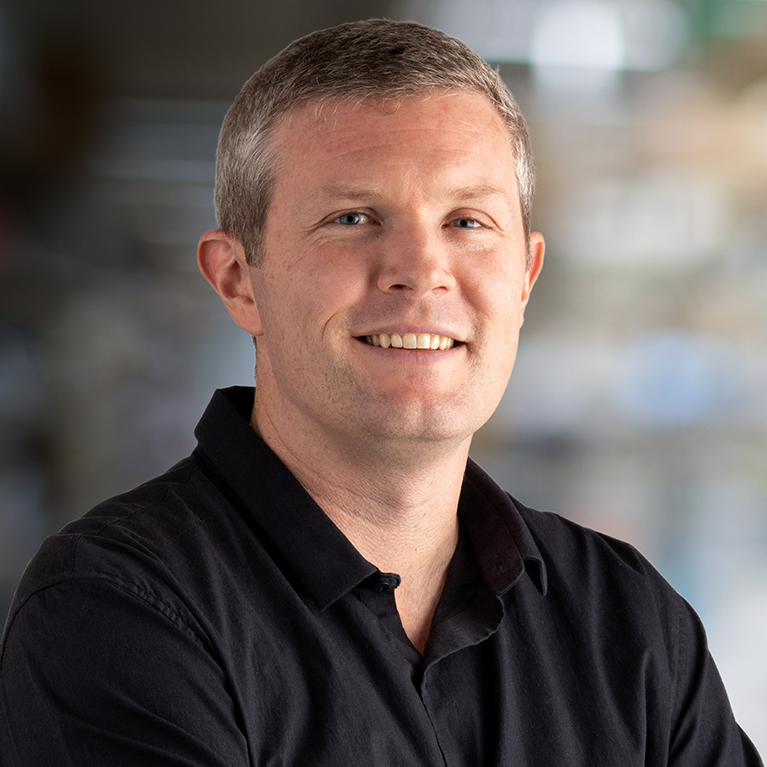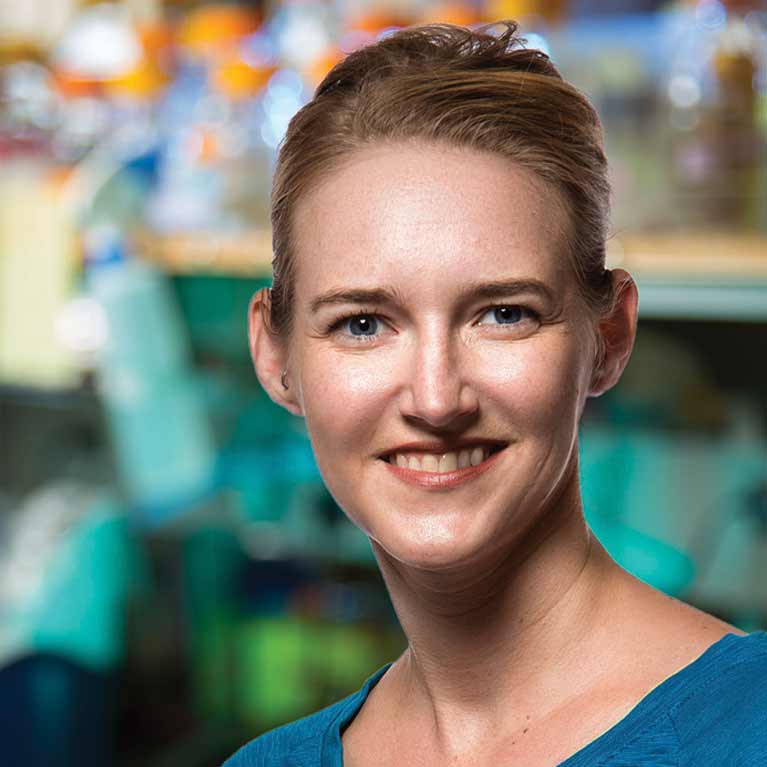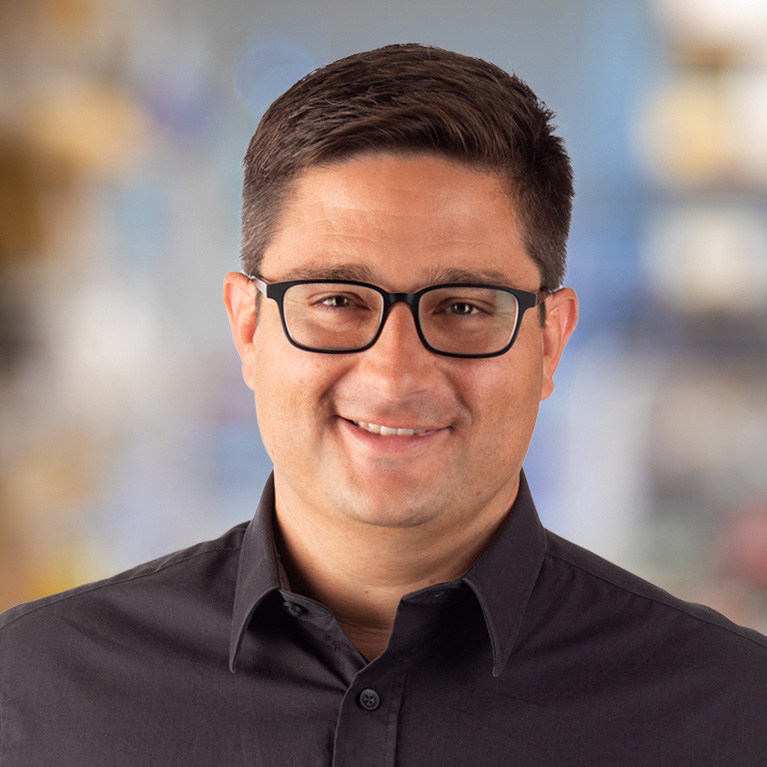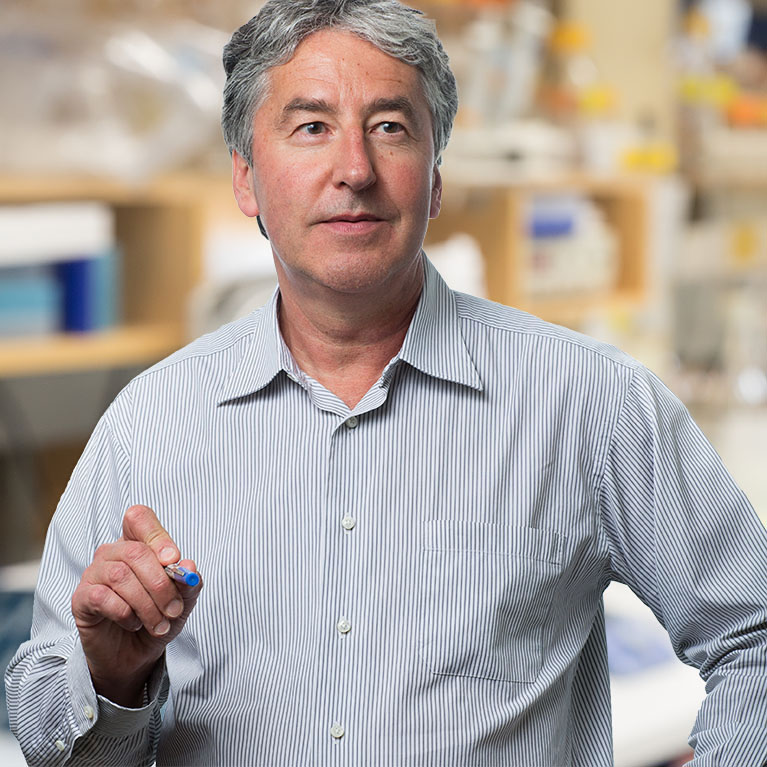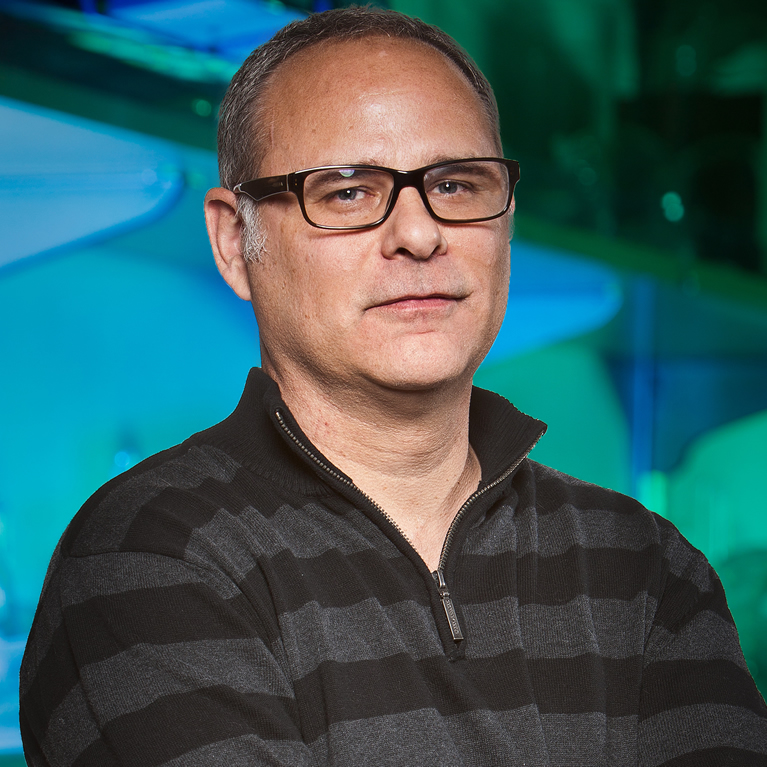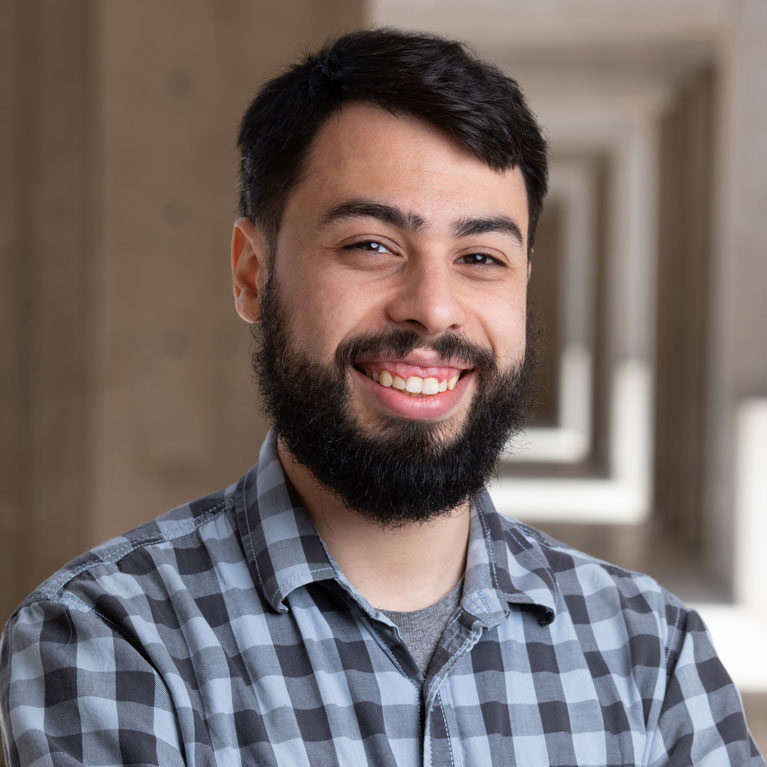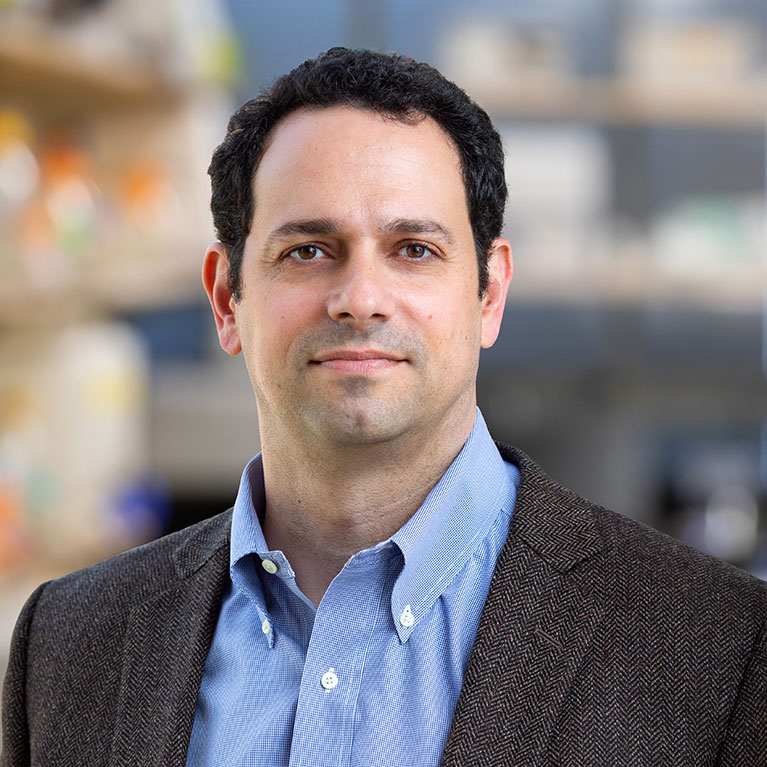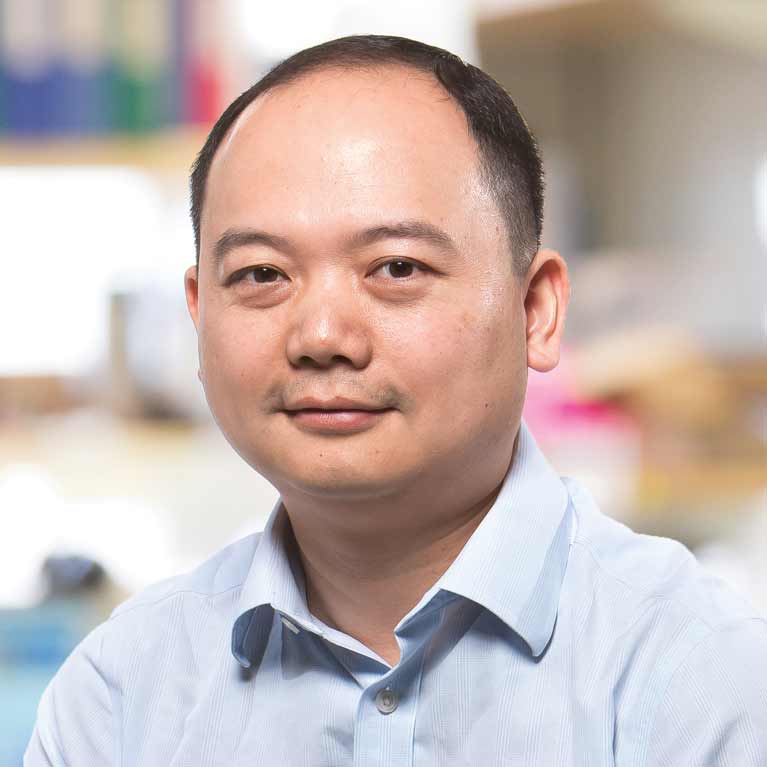Research Programs
The NCI Cancer Center is comprised of two programs:
Program 1: Genome Stability, Epigenetics & Aging in Cancer
The goals of Genome Stability, Epigenetics & Aging in Cancer (GEA) Program are three-fold: 1) to advance cancer research by strengthening ties between Salk Cancer Center researchers studying genomic and epigenetic underpinnings of cancer, while building new points of contact and synergies with researchers studying aging, 2) to continue to foster new technology development and utilization toward understanding tumor heterogeneity (e.g., using spatial transcriptomics to characterize the tumor microenvironment), and 3) to strengthen the translational pipeline so that GEA basic science discoveries can be translated into clinical applications that improve patient outcomes. The goals of the GEA program are represented in the following broad Specific Aims:
- Therapeutically harness the genetic, epigenetic, and circadian control of tumorigenesis
- Examine the contribution of genome stability, stress signaling, and aging to tumorigenesis with the ultimate goal of understanding the tight relationships between DNA repair, DNA-damage response, inter-organelle signaling, inflammation, and cancer initiation
- Investigate cancer initiation and heterogeneity by deciphering how cancer cells acquire different differentiation states and trajectories as tumors progress and by developing new single-cell and imaging technologies to visualize the cellular ecosystems of different cancer types.
The program includes fourteen (14) members:
Program 2: Tumor Immunology, Metabolism & Therapeutics
The goals of the Tumor Immunology, Metabolism & Therapeutics (IMT) Program are three-fold: 1) to generate more synergy across labs working on the tumor microenvironment and studying how interactions between cancer cells, fibroblasts, immune cells, and broader metabolic networks work in concert to influence tumor progression, therapeutic responses, and the health of cancer patients, 2) to strengthen collaborations that were naturally forming between many labs in IMT and to stimulate new collaborations with members recently added, and 3) to build innovative solutions and therapeutic strategies to some of the most challenging problems facing cancer today in immuno-oncology, metabolism, metastasis, cachexia, and early detection and prevention. The goals of these studies are represented in the following broad Specific Aims:
- Dissect how immune cells, the tumor microenvironment, and physiology contribute to cancer progression and health outcomes
- Define and target the critical metabolic and signaling networks dysregulated in cancer
- Therapeutically target biochemical pathways that sustain tumor progression
The program includes seventeen (17) members:




